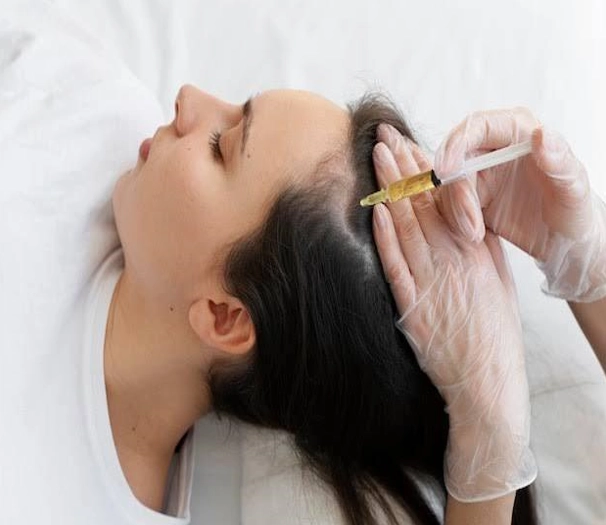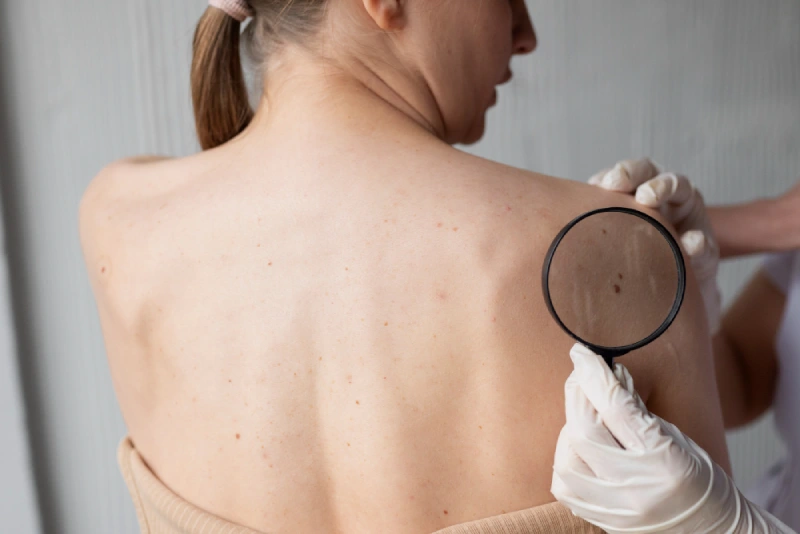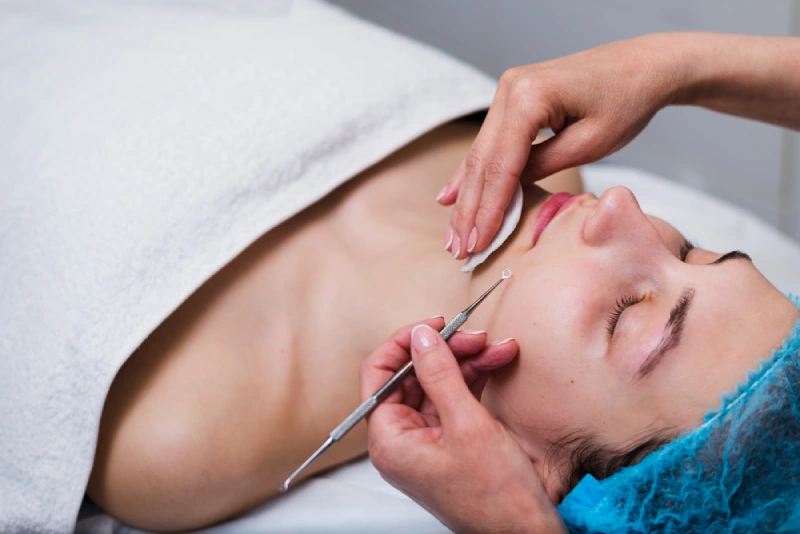Eating a balanced diet doesn’t just help you control your weight – it also has a direct effect on the health and appearance of your skin. While there is no single “magic food” that will cure all skin ailments, research has shown that certain dietary components can have an impact on skin health. In this blog post, we’ll explore the connection between diet and skin health and discuss some dietary changes you can make to improve the look and feel of your skin.
A balanced diet is important for overall health and well-being, but it also plays a role in maintaining healthy skin. Eating a diet rich in fruits, vegetables, whole grains, and lean protein can help keep your skin looking its best. We say “eat the rainbow” because including colorful foods in your diet helps you get plenty of vitamins, nutrients, and minerals naturally.
In addition to providing essential nutrients that keep your skin healthy, certain foods can also help protect your skin from damage. Antioxidant-rich foods like berries, tomatoes, and dark leafy greens can help fight off harmful free radicals that can cause premature aging. Omega-3 fatty acids are also beneficial building blocks for the skin. These healthy fats can be found in cod fish, salmon, walnuts, and flaxseeds.
While there are many benefits to eating a healthy diet, it’s also important to avoid foods that can cause problems for your skin. Processed foods, sugary snacks, and alcoholic beverages can all contribute to breakouts and other skin issues. If you’re struggling with your skin, talk to your dermatologist or naturopathic doctor about ways to improve your diet and take care of
your skin.

Do Foods Affect Skin Quality?
There are many different factors that can affect the health and appearance of your skin, and one of those is diet. What you eat can impact your skin in a number of ways, both good and bad.
Eating a healthy, balanced diet is important for overall health and this includes the health of your skin. Nutrients like vitamins A, C, and E are important for healthy skin, so make sure to include foods like fruits, vegetables, nuts, and seeds in your diet. Omega-3 fatty acids are also beneficial for the skin and can be found in foods like salmon, flaxseeds, and avocados.
On the other hand, there are certain foods that can have a negative impact on your skin. For example, sugary foods can cause breakouts or make existing acne worse. Processed foods can also be hard on the skin as they can contain high levels of sodium which can lead to dehydration. So, if you’re looking to maintain clear, healthy skin it’s important to limit these types of food in your diet.
How Your Diet Affects Your Skin
The health of your skin is affected by many factors, but one of the most important is your diet. What you eat and drink impacts the condition of your skin in a variety of ways, including its glowing appearance, texture, and hydration levels. – Zinc and Vitamin A: Zinc is an essential nutrient that’s critical for your skin’s health, helping to keep it hydrated and preventing acne and eczema. Unfortunately, the typical American diet is low in zinc; to make matters worse, excessive sun exposure depletes zinc from our skin. Vitamin A, which is also crucial for healthy skin, is found in many of the same foods that are high in zinc. – Iron, Vitamin B, and C: Iron and vitamin B are crucial for producing collagen, the protein that keeps your skin hydrated and youthful-looking. Vitamin C helps your body produce collagen, prevents wrinkles, and fights signs of aging. Unfortunately, many people do not consume enough of these nutrients. – Vitamin E and Selenium: Vitamin E can help prevent wrinkles and signs of aging, while selenium is necessary for a healthy metabolism. Unfortunately, many people do not get enough of these nutrients, either.

Good Foods To Eat For Your Skin
– Blueberries: Blueberries are packed with antioxidants that can help keep your skin hydrated and wrinkle-free. They are also an excellent source of vitamin C and zinc. Blueberries are also low in calories and make a great snack or addition to breakfast or salads.
– Spinach: Spinach is a great source of iron and vitamin C, as well as antioxidants that can help your skin stay healthy and hydrated. It can be eaten raw, cooked, or added to smoothies.
– Sweet Potatoes: Sweet potatoes are a great source of vitamin A, which is necessary for the production of collagen. They are also full of fiber and make a great side dish or snack.
– Carrots: Carrots are a great source of vitamin A, as well as beta-carotene, which the body can convert to vitamin A. Vitamin A is necessary for the production of collagen and can help prevent wrinkles.

Foods Bad For Skin
– Refined Carbohydrates: Refined carbohydrates can cause your skin to break out. That’s because when you eat them, your body metabolizes them as sugar and releases insulin. This leads to inflammation and excess oil production, which can cause breakouts and make acne worse making them a food bad for skin.
– Dairy Products: While some dairy products are good for your skin, others can cause breakouts and make acne worse. That’s because dairy products are high in the amino acid tyrosine, which the body turns into the stress hormone cortisol. Cortisol is linked to breakouts and inflammation, which is bad for your skin.
– Trans Fats: Trans fats are found in many processed foods and are linked to many health problems, including a higher risk of developing skin conditions like eczema and psoriasis. They are also a primary cause of insulin resistance, which can lead to breakouts and make acne worse.
Hydration and Skin
The biggest factor that determines the health of your skin is hydration. Hydration is the amount of water your skin holds, and it’s necessary for healthy skin because water keeps cells healthy, cleanses and hydrates your skin, and prevents skin damage caused by dehydration. Unfortunately, many people are chronically dehydrated, leading to dry, scaly, and unhealthy skin. One way to improve your hydration levels is to increase your water intake. Water is hydration’s best friend, but it’s not the only way to moisturize your skin. The best diet for your skin also includes healthy sources of fats and oils, like nuts, seeds, and avocado, as well as fruits and vegetables, like avocados and sweet potatoes.

Simple Strategies To Improve Your Skin
– Drink water: Stay hydrated by drinking water as often as you can. Aim to drink half your body weight (in ounces) each day.
– Sleep: Sleep is critical for skin health, so make sure to get enough shut-eye each night.
– Eat a balanced diet: Keep a healthy diet rich in fruits and vegetables, as well as healthy fats and oils.
– Wear sunscreen: Protect your skin by wearing sunscreen when you’re outside, especially in the sun’s harshest hours: 10am to 2pm.
– Manage stress: Stress is linked to many skin conditions, so take steps to manage stress in your life, such as meditating or exercising.
Your skin is the largest organ in your body, and it serves many important functions. It helps regulate your body’s temperature, protects your muscles and internal organs from injury, and releases necessary hormones. Your diet has a significant impact on the health of your skin, from how hydrated it is to how clear it is. Eating well can help keep your skin looking and feeling great, no matter your age.




